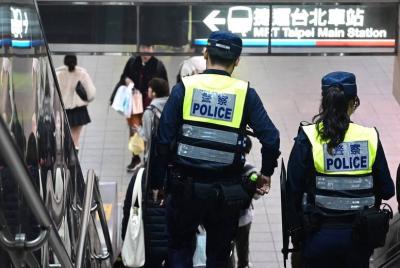A US Congressional report warns that cutting US Navy programs could affect the “likelihood or outcome” of a military conflict with China over Taiwan.
The report adds that the US-China military balance in the Pacific could also influence day-to-day choices made by other Pacific countries on whether to align their policies more closely with Beijing or Washington.
“The question of how the US should respond to China’s military modernization effort, including its naval modernization effort, has emerged as a key issue in US defense planning,” the report says.
Entitled China Naval Modernization: Implications for US Navy Capabilities, the report by the Congressional Research Service was released this week.
The report says that the Pentagon believes that the near-term focus of China’s military modernization effort has been to develop military options for addressing the situation with Taiwan.
Consistent with this goal, the report says that China wants its military to be capable of acting as a so-called anti-access force — a force that can deter US intervention in a conflict involving Taiwan, or failing that, delay the arrival or reduce the effectiveness of intervening US naval and air forces.
The report comes as the US Congress is under increasing pressure during this presidential election year to make ever-deeper spending cuts.
It says that in addition to Taiwan, the Chinese military is being tasked with defending territorial claims in the South China Sea and East China Sea and displacing US influence in the Pacific.
These tasks are significant, the report adds, because “they imply that if the situation with Taiwan were somehow resolved, China could find continuing reasons to pursue its naval modernization effort.”
The report says that if Taiwan were no longer a problem for Beijing, greater emphasis would be placed on goals not directly related to Taiwan, such as aircraft carriers, a larger number of nuclear-powered attack submarines, serial production of destroyers and larger amphibious ships.
According to the report, the US Navy needs to maintain a fleet with a minimum of 313 ships.
However, under its current 30-year plan, the US Navy will not reach that goal, with cruiser-destroyers and attack submarines falling substantially below needed levels.
The report highlights “concerns” that in coming years the US Navy will not be large enough to adequately counter improved Chinese maritime anti-access forces while also adequately performing other missions around the world.
There are also concerns, it says, that a combination of growing Chinese naval capabilities and budget-driven reductions in the size of the US Navy could encourage Chinese military overconfidence.
At the same time, such developments might demoralize US allies and partners in the Pacific and “destabilize or make it harder for the US to defend its interests in the region.”

Beijing could eventually see a full amphibious invasion of Taiwan as the only "prudent" way to bring about unification, the US Department of Defense said in a newly released annual report to Congress. The Pentagon's "Annual Report to Congress: Military and Security Developments Involving the People's Republic of China 2025," was in many ways similar to last year’s report but reorganized the analysis of the options China has to take over Taiwan. Generally, according to the report, Chinese leaders view the People's Liberation Army's (PLA) capabilities for a Taiwan campaign as improving, but they remain uncertain about its readiness to successfully seize

Taiwan is getting a day off on Christmas for the first time in 25 years. The change comes after opposition parties passed a law earlier this year to add or restore five public holidays, including Constitution Day, which falls on today, Dec. 25. The day marks the 1947 adoption of the constitution of the Republic of China, as the government in Taipei is formally known. Back then the Chinese Nationalist Party (KMT) governed China from Nanjing. When the KMT, now an opposition party in Taiwan, passed the legislation on holidays, it said that they would help “commemorate the history of national development.” That

Taiwan has overtaken South Korea this year in per capita income for the first time in 23 years, IMF data showed. Per capita income is a nation’s GDP divided by the total population, used to compare average wealth levels across countries. Taiwan also beat Japan this year on per capita income, after surpassing it for the first time last year, US magazine Newsweek reported yesterday. Across Asia, Taiwan ranked fourth for per capita income at US$37,827 this year due to sustained economic growth, the report said. In the top three spots were Singapore, Macau and Hong Kong, it said. South

Police today said they are stepping up patrols throughout the Taipei MRT system, after a social media user threatened to detonate a bomb at an unspecified station this afternoon. Although they strongly believe the threat to be unsubstantiated, Taipei Metro police and the Railway Police Bureau still said that security and patrols would be heightened through the system. Many copycat messages have been posted since Friday’s stabbing attacks at Taipei Main Station and near Zhongshan MRT Station that left three dead and 11 injured, police said. Last night, a Threads user in a post said they would detonate a bomb on the Taipei